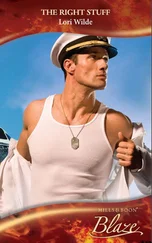During the summer Kennedy had gone on television to tell the nation that a nuclear test ban agreement with the Russians had been reached. Thereupon the Soviet foreign minister, Andrei Gromyko, had proposed a corollary that would ban even the placing of nuclear weapons in earth orbit. The Soviets themselves were extinguishing the notion of the thunderbolts from space. On August 30 there had gone into service the piece of equipment by which the entire interlude would be remembered: the hotline, a telephone hookup between the White House and the Kremlin, the better to avoid misunderstandings that might result in nuclear war. When Kennedy was assassinated on November 22 by a man with Russian and Cuban ties, there was no anti-Soviet or anti-Cuban clamor in the Congress or in the press. The Cold War, as anyone could plainly see, was over.
No one, and certainly not the men themselves, could comprehend the meaning of this for the role of the astronaut , however. The new President, Lyndon Johnson, proved to be even more of a proponent of the space program than his predecessor. Due partly to the political genius of James E. Webb, who now came into his own, the Congress swung about and gave NASA a blank check for the missions to the moon. Nevertheless, the fact remained: the Cold War was over.
No more manned spaceflights were scheduled until the start of the Gemini program in 1965. By then the seven Mercury astronauts would begin to feel a change in the public attitude toward them and, for that matter, toward the Next Nine and the groups of astronauts that were to follow. They would feel the change, but they would not be able to put it into words. What way that feeling? Why, it was the gentle slither of the mantle of soldierly glory sliding off one's shoulders!—and the cooling effect of oceans of tears drying up! The single-combat warriors' war had been removed. They would continue to be honored, and men would continue to be awed by their courage; but the day when an astronaut could parade up Broadway while traffic policemen wept in the intersections was no more. Never again would an astronaut be perceived as a protector of the people, risking his life to do battle in the heavens. Not even the first American to walk on the moon would ever know the outpouring of a people's most primal emotions that Shepard, Cooper, and, above all, Glenn had known. The era of America's first single-combat warriors had come, and it had gone, perhaps never to be relived.
The Lord giveth, and the Lord taketh away. The mantle of Cold Warrior of the Heavens had been placed on their shoulders one April day in 1959 without their asking for it or having anything to do with it or even knowing it. And now it would be taken away, without their knowing that, either, and because of nothing they ever did or desired. John Glenn had made up his mind to run for the Senate in Ohio in 1964. He could not have foreseen that the voters of Ohio would no longer regard him as a man with a protector's aura. But at least he would be remembered. It would have been still more impossible for his confreres to realize that the day might come when Americans would hear their names and say, "Oh, yes—now, which one was he?"
The writing of this book would have been impossible without the personal recollections of many people, pilots and non-pilots, who were intimately involved in the beginning of the era of manned rocket flight in America. I wish there were some way to thank them properly for their generosity and for the time and effort it took them to review events that go back twenty years or more in some cases.
The NASA history office at the Johnson Space Center in Houston was unfailingly helpful, especially in giving me access to transcriptions of the post-flight debriefings of the astronauts. I should mention in particular NASA historian James M. Grimwood, the author, with his colleagues, Loyd S. Swenson, Jr., and Charles C. Alexander, of This New Ocean: a History of Project Mercury . Other books I would like to acknowledge are Always Another Dawn , by A. Scott Crossfield with Clay Blair, Jr.; Starfall , by Betty Grissom and Henry Still; Across the High Frontier , by Charles E. Yeager and William Lundgren; The Lonely Sky , by William Bridgeman and Jacqueline Hazard; X-15 Diary , by Richard Tregaskis; and We Seven , by the seven Mercury astronauts.
The names of four figures appearing briefly in the narrative have been changed: Bud and Loretta Jennings, Mitch Johnson, and Gladys Loring.











